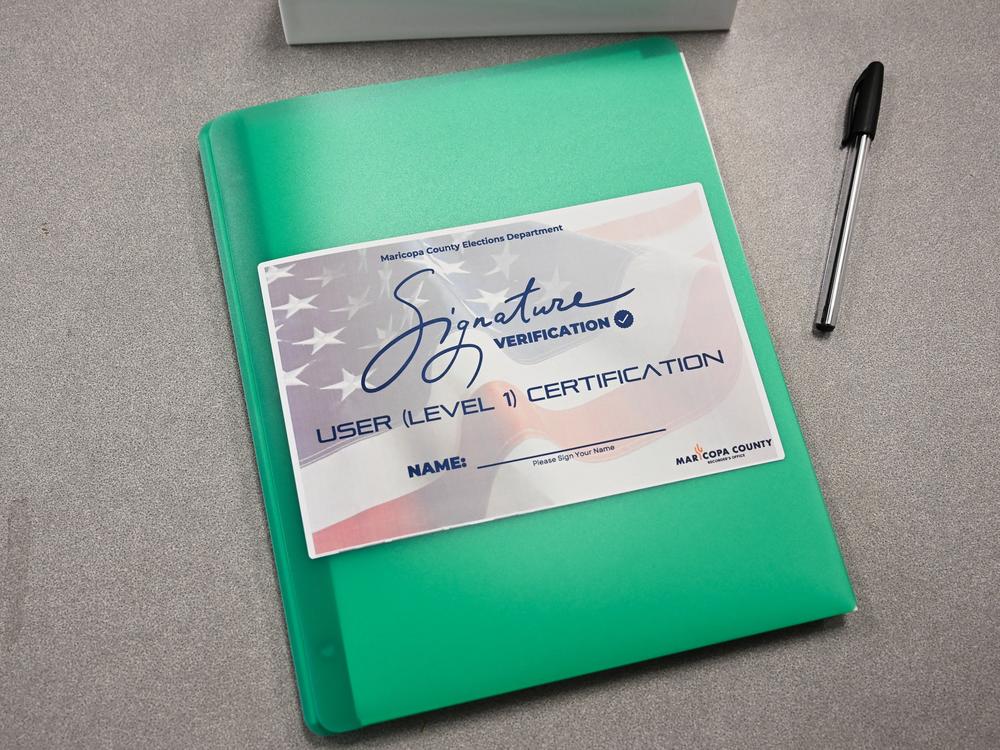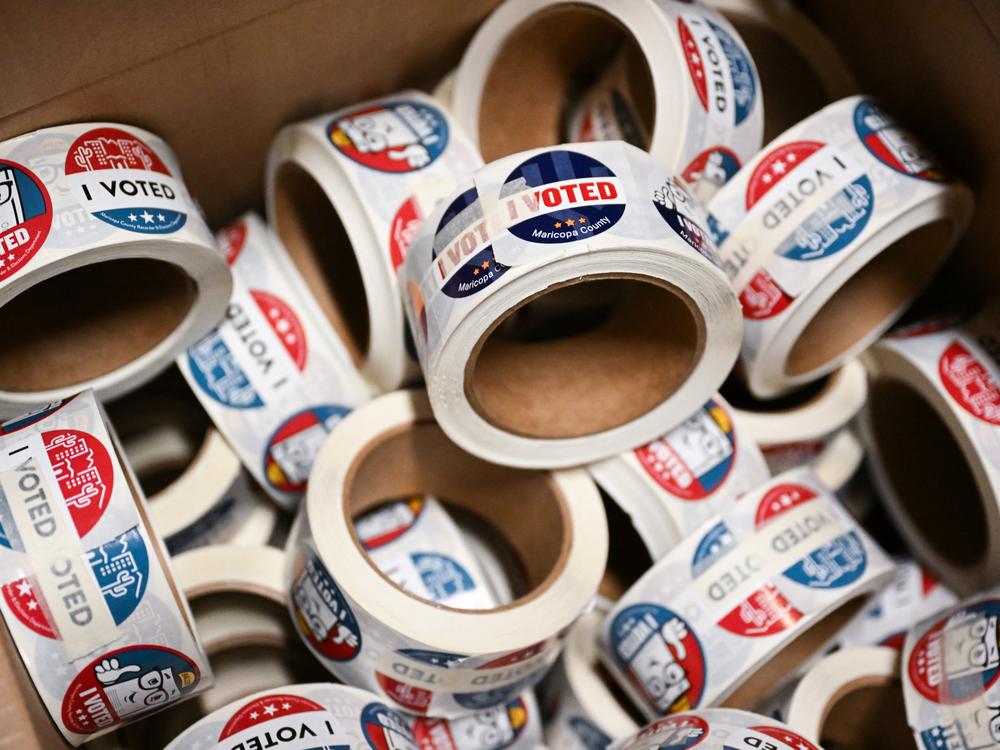Section Branding
Header Content
Arizona's Maricopa County prepares to be in the election spotlight once again
Primary Content
PHOENIX — Maricopa County in Arizona — home to nearly 60% of the voting population in the swing state — will once again be in the spotlight come this fall’s general election.
Ever since 2020, that spotlight has brought with it pervasive conspiracy theories about elections — including from this year’s leading Republican U.S. Senate candidate in the state.
And for the past four years, election officials in Maricopa County have been on the frontlines of efforts to fight back against baseless claims with accurate information about the voting experience, how votes are counted and when results are released.
While state law hasn’t significantly altered how elections are conducted, county officials have planned a number of changes this year to try to improve election administration and prevent new conspiracy theories from sprouting.
For example, the Maricopa County Board of Supervisors budgeted $9 million to buy new printers, replacing older models that struggled to properly print roughly 17,000 ballots on Election Day in 2022 — and led to unsupported fraud claims.
The office of Maricopa County Recorder Stephen Richer, which is in charge of early voting by mail, also added more steps and audit cues as part of signature verification, the process used to ensure mail ballots were turned in by the voter the ballot was mailed to.
“Some of that has not been with a goal towards speed,” Richer said. “Some of that has been the goal towards increased integrity, increased eyeballs on it, increased scrutiny, increased documentation.”
But this year, he also hired more staff to verify those signatures, a step he hopes will allow the county to report more results sooner. That required building modular facilities at county elections headquarters over the last two years.
“The previous limitation was a space limitation — we just didn't have enough space to have more people working signature verification,” Richer said.
More workers verifying signatures is crucial immediately after Election Day, when the recorder’s office is responsible for processing what are likely to be hundreds of thousands of so-called “late-early” ballots — mail ballots that voters don’t return until the weekend before, or on, Election Day.
“Simply having more people being able to work on that,” Richer said, will hopefully increase the speed at which the county can report election results, and in turn, increase the speed at which the news media can call close races.
But there’s one thing Richer and other election officials can’t control: how narrowly divided the Arizona electorate is between Republican and Democratic candidates.
In 2020, Joe Biden carried Arizona by roughly 10,000 votes. In 2022, the state attorney general race was decided by just 280 votes, after a recount.
That’s why Richer is also in the business of managing expectations.
Included in this year’s mail ballot packets is an informational sheet, co-written by Richer and the county board, that explains how votes are counted, as well as the media’s role in calling the winner in some races before all votes are counted.
That information is to help voters understand why sometimes the results make races too close to call.
Maricopa County has been a hotspot for false claims and threats
While Richer and other officials are tweaking protocols and procedures, for voters, nothing has fundamentally changed.
“Election law is governed by state law and state law hasn't materially changed,” Richer said. “So the experience for the voter will be very similar.”
Early ballots for the state’s primary were mailed last week to voters who signed up to receive them.
Voters have the rest of the month to fill out and return those early ballots, either through the mail or at polling places or drop boxes stationed throughout Maricopa County.
Those who prefer to cast their ballots in person have the option to vote early at polling locations now open in Maricopa County.
Or they can always wait and vote on Election Day, July 30.
“Voters have had a lot of options literally for decades in Arizona and in Maricopa County,” said Tammy Patrick, the CEO of programs for the National Association of Election Officials, and a former Maricopa County official.
“There weren't a lot of things that will have changed for 2024 because they were already doing what are known as best practices to ensure that our election systems are safe, secure and accessible,” she added.
Perhaps the biggest difference, then, is in the lives of election officials like Richer, who’ve spent the past four years under the microscope while running elections in the third-largest voting jurisdiction in the country — smaller only than Los Angeles County and Harris County, Texas.
“To the extent that it's been said or done, it's been said or done in Maricopa County,” Richer said. “We seem to be the focal point for a lot of these conversations. And so I think that the team is no stranger to that.”
Richer himself is no stranger to the worst of those conversations.
The Republican, who’s up for reelection and faces challengers in the July 30 GOP primary, faced calls for his lynching in a newly discovered video.
It’s not the first time he’s been threatened. In 2022, federal prosecutors charged a Missouri man for allegedly threatening to kill Richer after he criticized fellow Republicans who conducted a deeply flawed review of Maricopa County’s 2020 presidential election. There were “plenty more where that came from,” Richer said at the time.
“It takes a strong stomach to work in this field,” Richer recently told NPR.
And conspiracies stirred anew just last month, when a temporary election worker was arrested for stealing a piece of election equipment — a security key that was quickly identified as missing and recovered.
“I certainly hope that people don’t take this incident to spin up new conspiracy theories,” Republican Maricopa County Supervisor Bill Gates told reporters at a June press conference. “But that's exactly why the sheriff and I are here today to answer these questions to address this and frankly to let people know that our protocols worked.”
Arizona is expected to see close elections this fall again.
“The closer the race, the more scrutiny there will be, and the more attention and the more pressure,” Patrick told NPR.
That’s a burden Maricopa County has shouldered each of the last two election cycles, she says, and one it should expect to carry for the foreseeable future.
It’s like sports, Patrick says: “If you're watching a game, and it's a blowout, you turn the channel to watch something else.”
For the nation, that channel is now Arizona.



